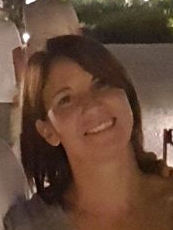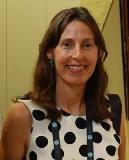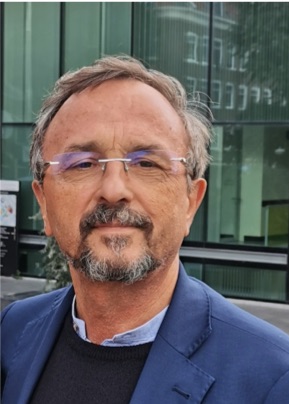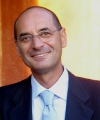Studying at the University of Verona
Here you can find information on the organisational aspects of the Programme, lecture timetables, learning activities and useful contact details for your time at the University, from enrolment to graduation.
Academic calendar
The academic calendar shows the deadlines and scheduled events that are relevant to students, teaching and technical-administrative staff of the University. Public holidays and University closures are also indicated. The academic year normally begins on 1 October each year and ends on 30 September of the following year.
Course calendar
The Academic Calendar sets out the degree programme lecture and exam timetables, as well as the relevant university closure dates..
| Period | From | To |
|---|---|---|
| I semestre | Oct 3, 2011 | Jan 31, 2012 |
| II semestre | Mar 1, 2012 | Jun 15, 2012 |
| Session | From | To |
|---|---|---|
| Sessione straordinaria | Feb 1, 2012 | Feb 29, 2012 |
| Sessione estiva | Jun 18, 2012 | Jul 31, 2012 |
| Sessione autunnale | Sep 3, 2012 | Sep 28, 2012 |
| Session | From | To |
|---|---|---|
| Sessione autunnale | Oct 13, 2011 | Oct 13, 2011 |
| Sessione straordinaria | Dec 16, 2011 | Dec 16, 2011 |
| Sessione invernale | Mar 15, 2012 | Mar 15, 2012 |
| Sessione estiva | Jul 19, 2012 | Jul 19, 2012 |
| Period | From | To |
|---|---|---|
| Festa di Ognissanti | Nov 1, 2011 | Nov 1, 2011 |
| Festa dell'Immacolata Concezione | Dec 8, 2011 | Dec 8, 2011 |
| Vacanze Natalizie | Dec 22, 2011 | Jan 6, 2012 |
| Vacanze Pasquali | Apr 5, 2012 | Apr 10, 2012 |
| Festa della Liberazione | Apr 25, 2012 | Apr 25, 2012 |
| Festa del Lavoro | May 1, 2012 | May 1, 2012 |
| Festa del Patrono di Verona S. Zeno | May 21, 2012 | May 21, 2012 |
| Festa della Repubblica | Jun 2, 2012 | Jun 2, 2012 |
| Vacanze estive | Aug 8, 2012 | Aug 15, 2012 |
Exam calendar
Exam dates and rounds are managed by the relevant Science and Engineering Teaching and Student Services Unit.
To view all the exam sessions available, please use the Exam dashboard on ESSE3.
If you forgot your login details or have problems logging in, please contact the relevant IT HelpDesk, or check the login details recovery web page.
Should you have any doubts or questions, please check the Enrollment FAQs
Academic staff
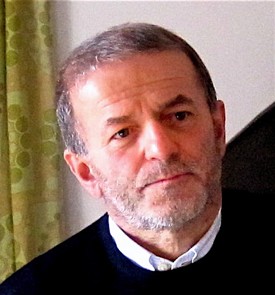
Vallini Giovanni
 giovanni.vallini@univr.it
giovanni.vallini@univr.it
 045 802 7098; studio dottorandi: 045 802 7095
045 802 7098; studio dottorandi: 045 802 7095
Study Plan
The Study Plan includes all modules, teaching and learning activities that each student will need to undertake during their time at the University.
Please select your Study Plan based on your enrollment year.
1° Year
| Modules | Credits | TAF | SSD |
|---|
2° Year activated in the A.Y. 2012/2013
| Modules | Credits | TAF | SSD |
|---|
| Modules | Credits | TAF | SSD |
|---|
| Modules | Credits | TAF | SSD |
|---|
Legend | Type of training activity (TTA)
TAF (Type of Educational Activity) All courses and activities are classified into different types of educational activities, indicated by a letter.
Bioinformatics and Protein engineering (2011/2012)
The teaching is organized as follows:
Learning outcomes
Il corso di Ingegneria proteica si propone di fornire allo studente le basi, teoriche e applicative, riguardanti gli algoritmi, i programmi e i protocolli sperimentali utilizzati nel disegno razionale di proteine. Verranno proposti alcuni casi-modello selezionati dalla letteratura più recente.
Il corso si divide in due moduli: A) Ingegneria proteica in vitro e B) Ingegneria proteica in silico.
To provide a molecular basis of life processes for students who are willing to use informatics and calculus.
The course is directed to students/graduates in physics, chemistry, informatics or biology
Program
Ingegneria Proteica
Struttura delle proteine, motivi, folding
Disegno razionalizzato delle proteine: mutagenesi sito-specifica
Evoluzione diretta: mutagenesi random, DNA-shuffling
Ingegneria de novo di proteine
Applicazioni di disegno razionalizzato per ottimizzare le proprietà di catalisi di un enzima, o per l'inserimento di proteine in biosensori
Bioinformatica
• Protein structure prediction and structural genomics, which attempt to systematically produce accurate structural models for three-dimensional protein structures that have not been determined experimentally.
• Computational biochemistry and biophysics, which make extensive use of structural modeling and simulation methods such as molecular dynamics and Monte Carlo method-inspired Boltzmann sampling methods in an attempt to elucidate the kinetics and thermodynamics of protein functions. Computational Biophysics is concerned with solving biological and biomedical problems using physical, mathematical and computational methods.Computational Biophysics is recognized as an essential element in modern biological and biomedical research. There have been fundamental changes in biology and medicine, over the past decade, due to spectacular advances in biomedical imaging, genomics, and proteomics. The nature of these changes demands the application of novel theories and advanced computational tools to decipher the implications of these data, and to devise methods of controlling or modifying biological function. Consequently, Computational Biologists must be well trained and grounded in biology, physics, mathematics, and computer science. Interdisciplinary field that applies the principles and techniques of computer science, chemistry, applied mathematics, statistics and engineering to address biological problems. Some of these problems involve the development of computational and statistical data analysis methods and in developing mathematical modeling and computational simulation techniques. By these means it addresses scientific research topics with their theoretical and experimental questions without a laboratory. It is connected to the following fields:
• Computational biomodeling, a field concerned with building computer models of biological systems.
• Bioinformatics, which applies algorithms and statistical techniques to the interpretation, classification and understanding of biological datasets. These typically consist of large numbers of DNA, RNA, or protein sequences. Sequence alignment is used to assemble the datasets for analysis. Comparisons of homologous sequences, gene finding, and prediction of gene expression are the most common techniques used on assembled datasets; however, analysis of such datasets have many applications throughout all fields of biology.
• Mathematical biology aims at the mathematical representation, treatment and modeling of biological processes, using a variety of applied mathematical techniques and tools.
• Computational genomics, a field within genomics which studies the genomes of cells and organisms. High-throughput genome sequencing produces lots of data, which requires extensive post-processing (genome assembly) and uses DNA microarray technologies to perform statistical analyses on the genes expressed in individual cell types. This can help find genes of interest for certain diseases or conditions. This field also studies the mathematical foundations of sequencing. Advances in many areas of genomics research are heavily rooted in engineering technology, from the capillary electrophoresis units used in large-scale DNA sequencing projects. [1]
• Molecular modeling, which consists of modelling the behaviour of molecules of biological importance.
Examination Methods
Scritto
Type D and Type F activities
Modules not yet included
Career prospects
Module/Programme news
News for students
There you will find information, resources and services useful during your time at the University (Student’s exam record, your study plan on ESSE3, Distance Learning courses, university email account, office forms, administrative procedures, etc.). You can log into MyUnivr with your GIA login details: only in this way will you be able to receive notification of all the notices from your teachers and your secretariat via email and soon also via the Univr app.
Graduation
Deadlines and administrative fulfilments
For deadlines, administrative fulfilments and notices on graduation sessions, please refer to the Graduation Sessions - Science and Engineering service.
Need to activate a thesis internship
For thesis-related internships, it is not always necessary to activate an internship through the Internship Office. For further information, please consult the dedicated document, which can be found in the 'Documents' section of the Internships and work orientation - Science e Engineering service.
Final examination regulations
List of theses and work experience proposals
| theses proposals | Research area |
|---|---|
| Dinamiche della metilazione del DNA e loro contributo durante il processo di maturazione della bacca di vite. | Various topics |
| Miglioramento del profilo nutrizionale e funzionale di sfarinati di cereali mediante fermentazione con batteri lattici | Various topics |
| Risposte trascrittomiche a sollecitazioni ambientali in vite | Various topics |
| Studio delle basi genomico-funzionali del processo di embriogenesi somatica in vite | Various topics |
Attendance
As stated in the Teaching Regulations for the A.Y. 2022/2023, attendance is not mandatory. However, professors may require students to attend lectures for a minimum of hours in order to be able to take the module exam, in which case the methods that will be used to check attendance will be explained at the beginning of the module.

